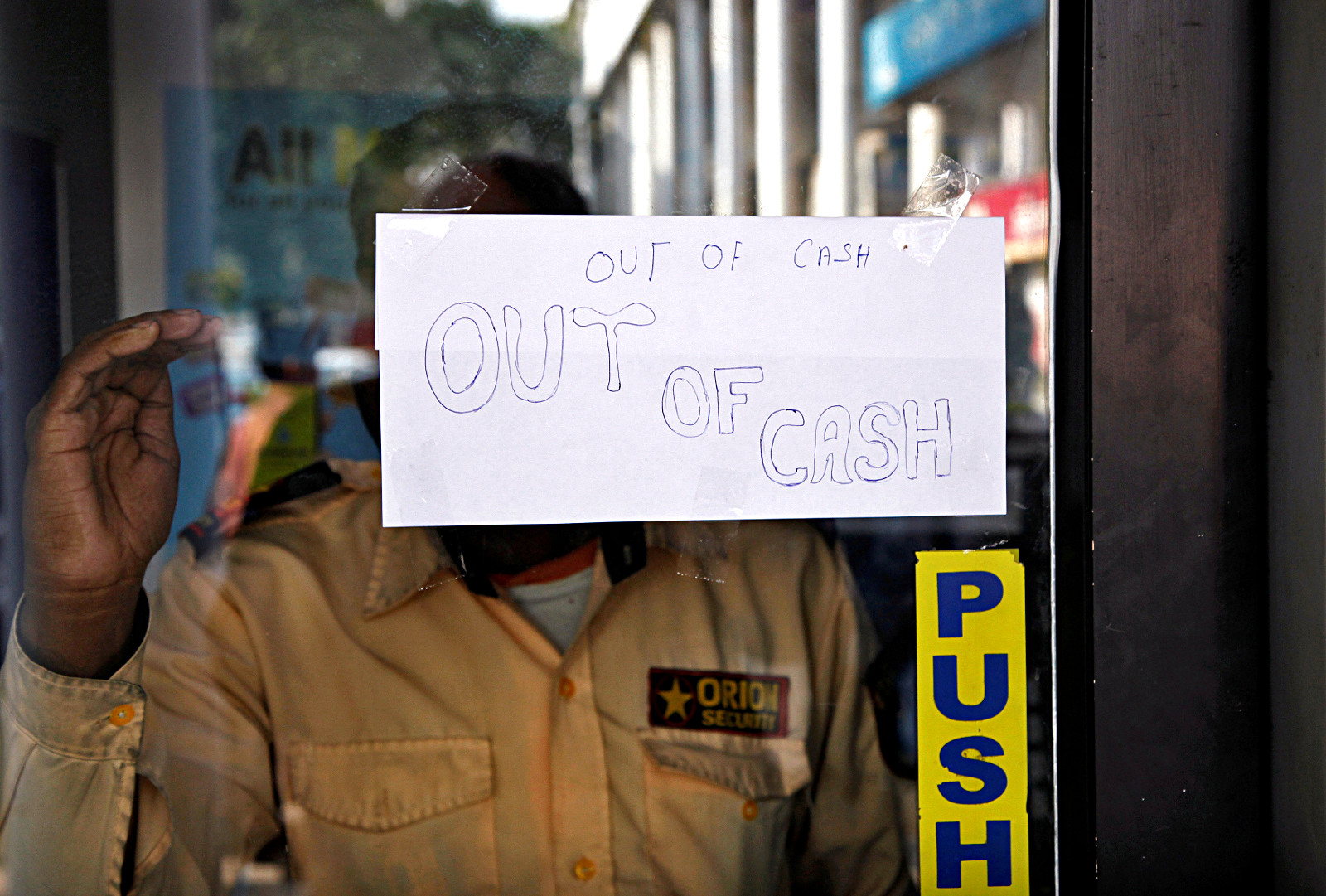
Earlier this month, India’s government suddenly declared that all 500- and 1,000-rupee notes no longer held any value, sending citizens across the country scrambling to exchange their now-worthless bills.
In the aftermath, university students are finding it difficult to get a hold of the cash they need for daily expenses, such as buying food, printing documents, and getting top-up for their mobile phones.
Only one ATM serves up to 2,000 students and lecturers at Amity University’s Gurgaon campus in northern India, which is replenished with notes only once a day.
“One ATM is not sufficient for thousands of people. They should have at least two ATMs on the campus premises,” a postgraduate student told Times of India (TOI).
Chaos in #India as people rush to change nullified 500- and 1,000- #Rupee bank noteshttps://t.co/dTddqIOU1a pic.twitter.com/JUUWiUPjui
— Asian Correspondent (@AsCorrespondent) November 13, 2016
Students at other universities told the paper that their campus ATMs were only refilled once since the demonetisation announcement, and that other ATMs in the area were not working, forcing them to choose between going to classes or travelling to larger cities to go to the bank.
Those without bank accounts in nearby cities are in an even tougher bind, as withdrawing money is next to impossible.
Banks are turning those without cheque books or pass books away, according to students.
Campus ATMs dry, cash rush for students https://t.co/uxnGTAeUKn
— TOI Gurgaon (@TOIGurgaon) November 26, 2016
Worried parents have had to ask friends and acquaintances in cities closest to their children to help lend cash until another solution is found.
Kirti Chauhan, whose daughter studies at an institution in Mumbai, said: “We do not have relatives in Mumbai so I’m quite worried. My daughter has a debit card she is using, but still we are worried because some transactions require cash.
“It has been over a week now and the crisis shows no signs of abating. The government must take measures such that the youngsters are not caught in such a situation,” she said.
#Nocash in hand, #students across #India hit hard #Demonitisation https://t.co/SdkELXvRAh via @TOICitiesNews
— Shivani Saxena (@shivanisTOI) November 20, 2016
Jayati Verma, 18, said to TOI over the phone: “I have never been this broke in my life. When the news was announced on November 8, I had Rs 300 in my pocket and I tried to use it as sparingly as possible but now I am cashless.
“My parents have deposited money in my account but it is back-breaking to stand in long queues at ATMs. Half the time, the machines run out of cash. I don’t know what to do.”
India’s #Modi calls for move towards #cashless society https://t.co/IEph4LXmN0 pic.twitter.com/Eh3yTaUnyu
— Asian Correspondent (@AsCorrespondent) November 28, 2016
Last weekend, Prime Minister Narendra Modi said the bank-note ban announced on November 8 was aimed at cracking down on corruption, people with unaccounted wealth, and counterfeiting of notes.
Modi also urged the country to embrace the concept of a cashless society and digital payment platforms.
Image via Reuters
Liked this? Then you’ll love these…
India’s IITs ban over 30 startups from recruiting students for placements
India’s new budget unveils plans to create 20 world-class universities







